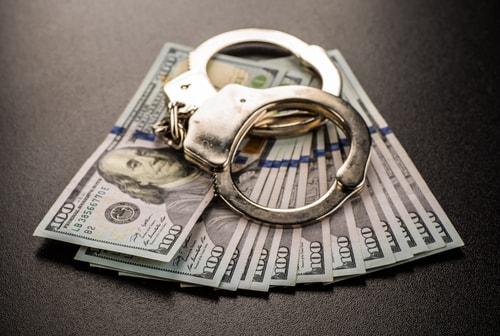ACLU Report Criticizes Modern-Day Debtors’ Prisons
 Did you know that you could end up in jail if you cannot pay your bills? This does not even refer to court-imposed fines or court-ordered obligations like child support. You could find yourself in jail over private debts such as student loans, medical bills, and unpaid rent. Now, you may be wondering how this is possible considering that debtors’ prisons were outlawed in the United States nearly 200 years ago. The answer is that private companies have found a loophole in the laws of dozens of states that allows them to use the threat of incarceration to generate payment of outstanding debt—a practice that the American Civil Liberties Union (ACLU) says criminalizes poverty.
Did you know that you could end up in jail if you cannot pay your bills? This does not even refer to court-imposed fines or court-ordered obligations like child support. You could find yourself in jail over private debts such as student loans, medical bills, and unpaid rent. Now, you may be wondering how this is possible considering that debtors’ prisons were outlawed in the United States nearly 200 years ago. The answer is that private companies have found a loophole in the laws of dozens of states that allows them to use the threat of incarceration to generate payment of outstanding debt—a practice that the American Civil Liberties Union (ACLU) says criminalizes poverty.
A Troubling Report
Technically, debtors’ prisons are illegal in the United States and have been since 1833. In recent years, however, private companies have begun "using the criminal justice system to punish debtors and terrorize them into paying, even when a debt is in dispute or when the debtor has no ability to pay," says a new report from the ACLU. According to the report, tens of thousands of warrants are issued each year in relation to unpaid private debts, but it is impossible to determine the exact number because court records do not usually track this category of warrants.
The ACLU report indicates that the process usually works like this:
- A person gets behind on a bill or a debt and the account is contracted or sold to a collection company;
- The debt remains unpaid, so the collection company files a claim in small-claims court or a similar venue;
- The debtor never learns about the lawsuit or chooses not to defend themselves;
- The court enters a judgment in favor of the collection company. The collection company requests a hearing where the debtor must present his or her case about the ability to pay the debt;
- In many cases, the debtor fails to appear—usually because they did not know about the hearing—so the collection company asks the court to issue a warrant for the debtor’s arrest; and
- The debtor can then be arrested if he or she is stopped for a traffic violation or during a warrant sweep.
Technically, the arrest warrant is issued for failing to appear in court and not the unpaid debt itself, and the matter is still considered to be civil rather than criminal. "They are never charged criminally, and the warrants are still civil, but they still lose their liberty," said Jennifer Turner, the report’s lead author and the principal human rights researchers at the ACLU. "They don’t have a criminal record, but they suffer a lot of the same collateral consequences."
The report also documented dozens of examples of cases where debtors received letters from the court warning them that they would be put in jail if they did not pay the outstanding debt. According to the ACLU, this is tantamount to blackmail—using the threat of the loss of freedom to force payment of private debts.
Protecting Your Rights
The ACLU estimated that only about 2 percent of debtors in collection cases have legal representation. Because they are technically civil matters rather than criminal, there is no constitutional right to an attorney and public defenders have no role in the proceedings. If you are facing the prospect of going to jail for any reason, including private debt, it is important to contact an experienced Connecticut criminal defense attorney immediately. Call 860-290-8690 for a free consultation at Woolf & Ross Law Firm, LLC today.
Sources:
https://www.nbcnews.com/news/us-news/debtors-prison-aclu-report-details-criminalization-private-debt-n849996
https://www.aclu.org/issues/smart-justice/mass-incarceration/criminalization-private-debt
https://www.thenation.com/article/prosecutors-and-judges-have-brought-back-debtors-prisons/






